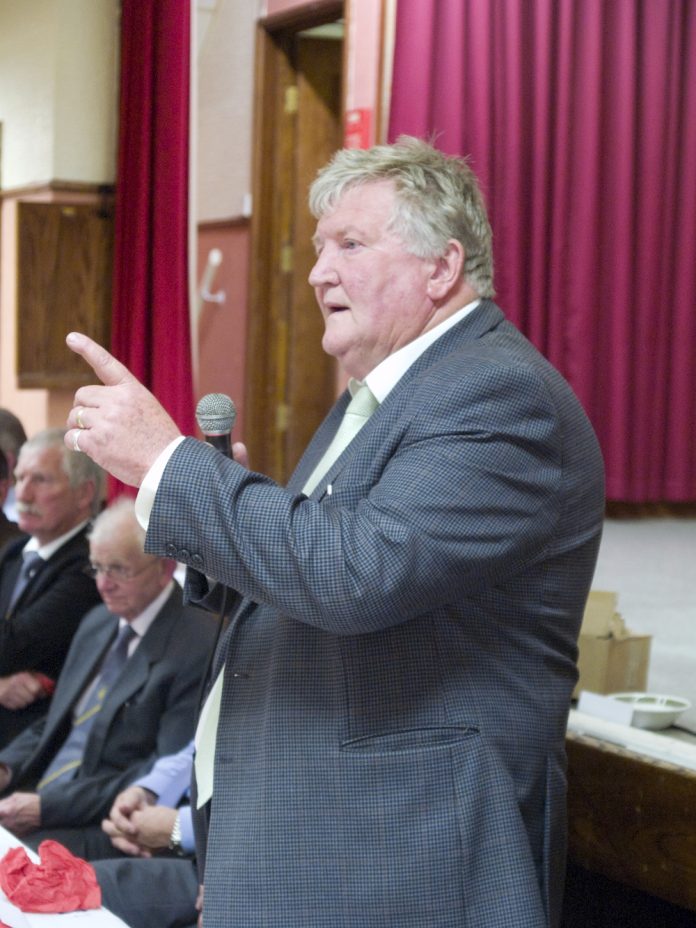Militant miners’ leader in South Wales
Dave Reid, Socialist Party Wales
Socialist Party members in South Wales were saddened to learn of the death of Tyrone O’Sullivan, lodge secretary at Tower Colliery National Union of Mineworkers (NUM), a Militant activist in the South Wales area of the NUM, and leader of the Tower Employees Buy Out miners’ co-operative.
Tyrone was elected as NUM lodge secretary at Tower Colliery aged just 23 and played an outstanding role fighting for his members, mobilising the rest of the South Wales NUM and campaigning for other workers in struggle.
“Tyrone was great company and he loved the life of the pit, the comradery and the joking. But his family always came first and, despite his ease with people, he was at heart a very private individual”, explains Mariam Kamish, who served on the Tower Lodge Committee after the buy-out.
It’s no exaggeration to say that Tyrone and the Tower lodge were responsible for the mobilisation of pickets in South Wales to bring out the South Wales miners at the beginning of the great Miners’ Strike of 1984-85.
“In March 1984, Tower voted solidly for strike action to stop the closure of Cortonwood in Yorkshire, but only a handful of the 28 South Wales pits had done the same. Tyrone coordinated to put on coaches to these other pits. As each pit was picketed out, they joined in picketing the next. By the end of the week, the whole coalfield was on strike.”
But under Tyrone’s leadership Tower did more than just spearhead the South Wales NUM’s own struggles in 1969, 72, 74, 81 and 84-85. Tower mobilised to support a host of workers’ struggles. “Any workforce in dispute would ring up – and miners would go down to picket.
“When women at the Hoover factory demanded equal pay, Tower NUM gave them full support and opened the Tower canteen to them for meals. They occupied Aberdare and Rhydlafar Hospitals to save them and, along with others, took strike action in support of nurses.”
In 1992 the Tories announced the closure and sell-off of the few remaining pits in Britain. Tower miners voted again and again against the closure of the colliery, but eventually Tyrone came to the conclusion that the pit would be closed anyway and sold to a private anti-union mining company. So he led the campaign for the Tower miners to put their redundancy money together and campaign to force the Tories to sell the pit to the workforce. A massive campaign was launched to demand the right for Tower miners to buy the pit.
Tyrone never changed his support for the renationalisation of the industry, but he believed the employee buy-out of the colliery saved hundreds of well-paid jobs in the Cynon Valley, including new apprenticeships for young people in the area. “Many played their role in the fight to save Tower, but without Tyrone’s unshakeable confidence and drive – his talents for leadership and building a movement – that fight would never have succeeded.”
Inevitably, as the Socialist Party warned, there was always a tension between workers’ control of the pit and the demands of the market, but Tower remained a source of solidarity and comradeship for all workers in struggle, with regular delegations of strikers from all over the UK and the world visiting Tyrone and Tower, where they would receive warm support, solidarity, strike fund donations and invaluable advice.
Tyrone was a staunch socialist all his life, but refused to give up on the Labour Party, even when the situation became hopeless. He was a firm supporter of Jeremy Corbyn as leader of the Labour Party and opposed the move to the right following Corbyn’s removal.
Tower survived until 2008 when the colliery was eventually closed and Tyrone retired. But his example of militant solidarity and a steadfast support for socialism remains. “It’s always worth fighting.” That’s what he lived by, that’s what he taught. That is his legacy.
- More at socialistpartywales.org.uk
- See the review of Tyrone’s book ‘Tower of Strength: The story of Tyrone O’Sullivan and Tower Colliery’ from 2002 in Socialism Today







